#BBC 4
Text

Jason Isaacs serving a Look in The Curse of Steptoe
#had to share this shot because it's been haunting me#jason isaacs#cross dressing#the curse of steptoe#my gifs#harry h corbett#bbc 4#steptoe and son#biopic#wardrobe goals
25 notes
·
View notes
Text
David Tennant looks back on the role he time-travelled into after leaving the Tardis, playing Hamlet in Greg Doran’s award-winning 2008 production for the Royal Shakespeare Company. David’s portrayal was described at the time as ‘athletic, and immensely engaging’, full of ‘vigour and wild humour’ and ‘the best great Dane in years’.
Here, he talks about his approach to the part, performing opposite Patrick Stewart, who played the role of Claudius, and the reaction he got when the production became a hit with BBC audiences when it was screened on Boxing Day 2009.
David Tennant stars in a film of the Royal Shakespeare Company's award-winning production of Shakespeare's great play. Director Gregory Doran's modern-dress production was hailed by the critics as thrilling, fast-moving and, in parts, very funny.
Hamlet must decide whether to avenge his father's murder at the hands of his uncle Claudius (played by Patrick Stewart), who has married his brother's wife - Hamlet's mother, Gertrude. This visually sumptuous screen version was filmed on location with all of the original stage cast.
BBC Productions in association with Illuminations and the Royal Shakespeare Company.
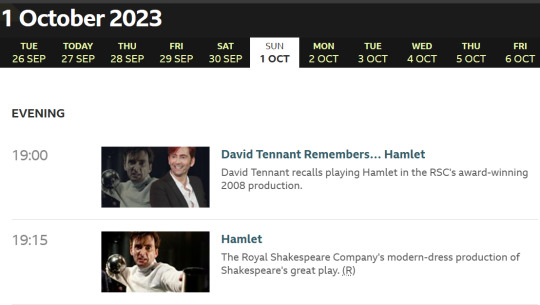
#David Tennant Remembers… Hamlet#David Tennant#Hamlet#Shakespeare#William Shakespeare#BBC#1st of October#BBC 4
15 notes
·
View notes
Text
This is me in the U.S. begging for a way to watch Talking Doctor Who
7 notes
·
View notes
Text

Do they always bill stuff like this in the listings? Or do they just have no confidence people will watch it without flagging him in the title? 😅
3 notes
·
View notes
Text
instagram
Thinking Andrew Scott! Remembering the time we were larking about in between takes of my BBC 4 play. The Statistical Probability of Love At First Sight. Directed by the brilliant @davidthetintin . We had a riot!
I wrote the part with Andrew in mind, and it was a dream-come -true moment when he came home early from his holiday in Greece to star in it. He bought such depth, grace and tenderness to the role. Hearing him speak my words blew my tiny mind.
Just saw Andrew play all the parts in the stage version of Simon Stephens’ VANYA. Of course he was extraordinarily brilliant. Then I watched him in Andrew Haig’s All of Us Strangers. Have you seen it yet? It’s kinda devastating- but heart-stoppingly beautiful.
#andrewscott#bbc4#vanya#allofusstrangers
#Charlotte Bogard Macleod#Andrew Scott#Vanya#The Statistical Probability of Love at First Sight#BBC 4#Andrew Haigh#All of Us Strangers#Instagram
6 notes
·
View notes
Text
The BBC doesn’t deserve nice things. It just spoils them.
13 notes
·
View notes
Text
Edinburgh Fringe mini-blog. Day 8. Performance 5 and a new script. Killing My Babies.
It started with an email this afternoon.
And then a follow-up a few hours later. Both are from the venue box office. One or two people had given feedback that the Literary Pub Crawl lasted longer than the billed one hour! Of course it did! I warned everyone at the start of the first tour that my first script was going to be six hours long, but this one would ‘only’ be two hours. Which it has…
#BBC 4#book festival#Edinburgh festival fringe#Edinburgh London Literary Pub Crawl#Frankenstien#Literary Edinburgh#new writing#Pleasance#poets#Virginia Woolf#Youth Theatre
0 notes
Text
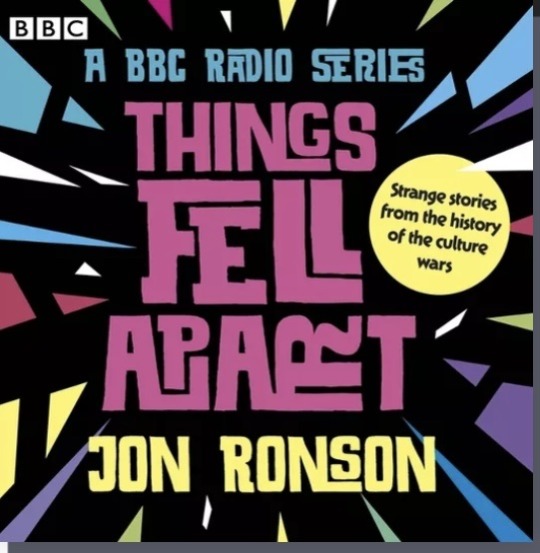
Things Fell Apart, by Jon Ronson
This came up as a book on my audiobook app but it was actually a series of radio programmes from the beeb. Each chapter d constructs a specific episode in the current culture wars. Fascinating.
#just finished#reading#books#things fell apart#jon ronson#culture wars#bbc 4#bbc#beeb#conspiracy theories
1 note
·
View note
Text
youtube
Motor City's Burning - Detroit from Motown to the Stooges Part (BBC 4, 2008)
1 note
·
View note
Text
Watch "5 Hours of The Shipping Forecast on BBC Radio 4!" on YouTube
youtube
#shipping forecast#bbc 4#just gonna drop this here#Youtube#thundery for a time#actually i think i love this#youtube threw it at me because i watch retro TWC all day everyday
0 notes
Text

Killing Eve (2018 - 22)
#killing eve#killing eve s4#killing eve season 4#jodie comer#phoebe waller bridge#sandra oh#tv#tv shows#british tv#tv series#tv show#movie quotes#quotes#fiona shaw#bbc three#bbc#bbc america#thriller#fleabag#current mood#moodboard#adhd mood#fleabag mood#such a mood#bpd mood#eve polastri#eve x villanelle#villanelle x eve#villanelle#be gay do crimes
6K notes
·
View notes
Text
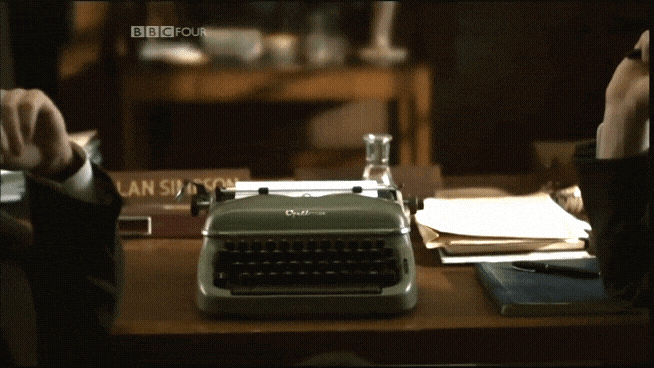
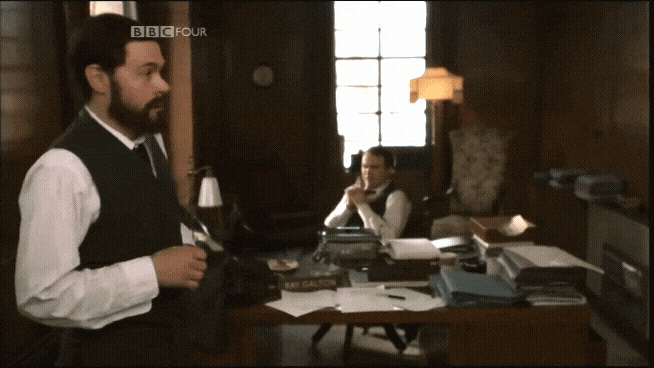
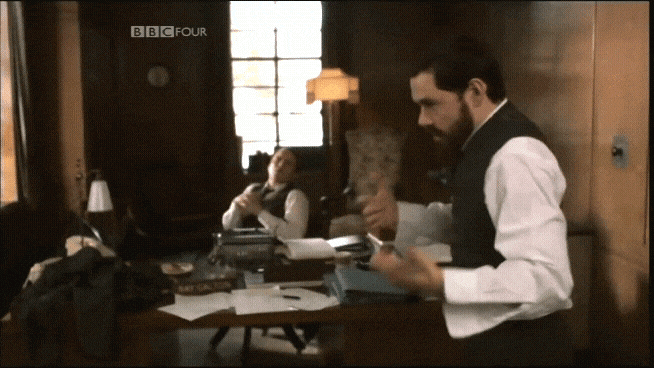

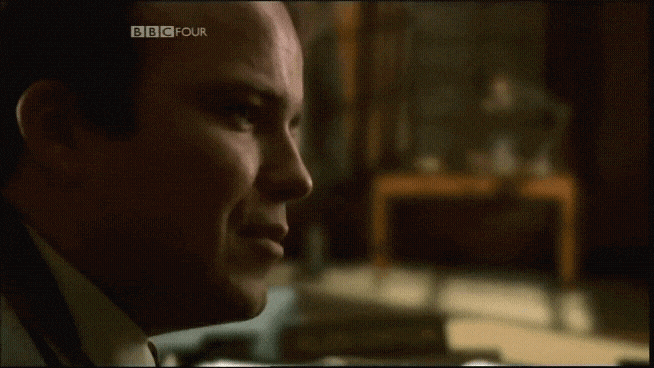

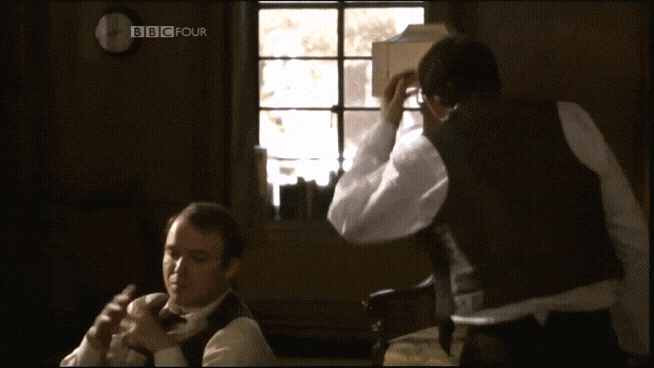


"I saw a rag-and-bone man in the street, on the way over."
"A rag-and-bone man? What an awful premise for a sitcom that would be."
Burn Gorman & Rory Kinnear as Ray Galton & Alan Simpson in The Curse of Steptoe
#burn gorman#rory kinnear#ray galton#alan simpson#the curse of steptoe#my gifs#i actually really loved this movie; i watched it twice already this weekend#like most biopics though this one kind of left a lead like weight in my chest#in the good way#if not for burn i would have eventually watched this for jason isaacs#also phil davis?????#in otger news the beard has grown on me and seeing burn clean shaven again may cause me whiplash#shut up ace#man i need a tag for burn now fuck#period film#1960s#steptoe and son#bbc 4
13 notes
·
View notes
Text
Hamlet is the Shakespearean character that many actors long to play. Jade Anouka is one of those actors. She talks to past Hamlets– Sir Derek Jacobi, Adrian Lester, Samuel West and Tessa Parr – about the challenges in approaching the part.
And she hears the fabled story of The Red Book, a red-bound copy of the play, begun by the actor Sir Johnston Forbes-Robinson, who passed the book on to a successive actor on the condition that in turn they passed it onto the finest Hamlet of the next generation. Derek Jacobi tells the story of receiving it from Peter O’Toole and passing it on to Kenneth Branagh, who in turn passed it on to Tom Hiddleston. Jade wonders where the book might go next.
Jade also explores why Hamlet as a part holds such fascination for actors. Here’s the rub - no one can tell you what Hamlet is about. A revenge tragedy, an Oedipal drama, a political betrayal, a study of insanity, the portrait of a fatally flawed genius. Each actor makes it his own but has to deal with the weight of its history.
Derek Jacobi tells the story of performing ‘To be or not to be’ only to hear the voice of Sir Winston Churchill joining in from the front row. Adrian Lester describes how he whispered each famous speech to himself in an attempt to get back to the essence of the language.
And each generation interprets Hamlet as an expression of their own time. Professor Michael Dobson from the Shakespeare Institute describes a production he saw in Ukraine in a cellar now used as a bomb shelter.
Readers: Sir Derek Jacobi, Adrian Lester, Samuel West, Tessa Parr
Producer: Sara Conkey
A True Thought production for BBC Radio 4
Acknowledgements: Hamlet BBC2 26th December 2009 Director - Gregory Doran Royal Shakespeare Company Production Hamlet – David Tennant Composer: Paul Englishby
Hamlet film 1948 Director – Laurence Olivier Screenplay – Laurence Olivier Hamlet – Laurence Olivier Composer: William Walton Two Cities Production
Hamlet BBC Radio 4 Production 2014 Director – Marc Beeby Hamlet – Jamie Parker Ophelia – Lizzy Watts
President Zelensky address to Parliament BBC Parliament Tuesday 8th March 2022
BBC Radio 4
#Hamlet#The Red Book#Sir Johnston Forbes-Robinson#Derek Jacobi#Peter O’Toole#Kenneth Branagh#Tom Hiddleston#Adrian Lester#Samuel West#Tessa Parr#Jade Anouka#BBC Radio 4#BBC 4#spotify#podcast#Spotify
16 notes
·
View notes
Text



I got the blues 💙
#bbc faggot#beta faggot#beta sissy#exposed faggot#faggot humiliation#faggot sissy#feminine sissy#humiliated sissy#humiliation sissy#panty sissy#sissy domination#sissy for bbc#sissy tasks#sissy crossdresser#sissy cd#sissy caged#submisive faggot#diaper faggot#faggot slave#black cock faggot#forced faggot#siss#sissi femboi#sissi slave#sissifeminine#sissifyme#sims 4#submisive sissy#simblr#sims 4 gameplay
733 notes
·
View notes
Text
BBC 4 just gets me on a fundamental level. I fucking love a documentary as it is and now it's like it's somehow picked up that I'm going through Good Omens withdrawal and is trying to soothe me.
Today: a Michael Sheen documentary on the Chartists. Last week: Tennant's Hamlet. (Keep it coming)
2 notes
·
View notes
Text
Please come and see me because I’ll be dead soon’: how Michael Sheen got sucked into a forever chemicals exposé
An opera-loving member of high society turned eco-activist who was forced into police protection with a panic button round his neck. A Hollywood actor who recorded said activist’s life story as he was dying from exposure to the very chemicals he was investigating. Throw in two investigative journalists who realise not everything is as it seems, then uncover some startling truths, and you have “podcasting’s strangest team” on Buried: The Last Witness.
On their award-winning 2023 podcast Buried, the husband and wife duo Dan Ashby and Lucy Taylor dug into illegal toxic waste dumping in the UK and its links to organised crime. This time, they focus on “forever chemicals”, specifically polychlorinated biphenyls (PCBs) and set out to discover whether one whistleblower may have been decades ahead of his time in reporting on their harmful impact.
“It’s amazing how big the scale of this story is,” says Ashby, as we sit backstage at the Crucible theatre, where they are doing a live discussion as part of Sheffield DocFest. “With this series, we don’t just want it to make your blood turn cold, we want it to make you question your own blood itself.”
It all started when Taylor and Ashby were sent a lead about the work of former farmer’s representative Douglas Gowan. In 1967, he discovered a deformed calf in a field and began to investigate strange goings on with animals close to the Brofiscin and Maendy quarries in south Wales. He linked them to the dumping of waste by companies including the nearby Monsanto chemical plant, which was producing PCBs.
PCBs were used in products such as paint and paper to act as a fire retardant, but they were discovered to be harmful and have been banned since 1981 in the UK. However, due to their inability to break down – hence the term forever chemical – Gowan predicted their legacy would be a troubling one. “I expect there to be a raft of chronic illness,” he said. He even claimed that his own exposure to PCBs (a result of years of testing polluted grounds) led his pancreas and immune system to stop working. “I’m a mess and I think it can all be attributed to PCBs,” he said.
However, Gowan wasn’t a typical environmentalist. “A blue-blood high-society Tory and a trained lawyer who could out-Mozart anyone,” is how Taylor describes him in the series. He would even borrow helicopters from friends in high places to travel to investigate farmers’ fields. Gowan died in 2018 but the pair managed to get hold of his life’s work – confidential reports, testing and years of evidence. “I’m interested in environmental heroes that aren’t cliche,” says Ashby. “So I was fascinated by him. But then we started to see his flaws and really had to weigh them up. My goodness it’s a murky world we went into.”
The reason they were able to delve even deeper into this murky world is because of the award-winning actor Michael Sheen who, in 2017, came across Gowan’s work in a story he read. He was so blown away by it, and the lack of broader coverage, that he tracked him down. “I got a message back from him saying: ‘Please come and see me because I’ll be dead soon,’” says Sheen. “I took a camera with me and spent a couple of days with him and just heard this extraordinary story.”
What Gowan had been trying to prove for years gained some traction in 2007, with pieces in the Ecologist and a Guardian article exploring how “Monsanto helped to create one of the most contaminated sites in Britain”. One was described as smelling “of sick when it rains and the small brook that flows from it gushes a vivid orange.” But then momentum stalled.
Years later, in 2023, Ashby and Taylor stumbled on a recording of Sheen giving the 2017 Raymond Williams memorial lecture, which referenced Gowan and his work. Before they knew it, they were in the actor’s kitchen drinking tea and learning he had conducted a life-spanning seven-hour interview with Gowan before his death. So they joined forces. Sheen isn’t just a token celebrity name added for clout on this podcast; he is invested. For him, it’s personal as well as political. “Once you dig into it, you realise there’s a pattern,” he says. “All the places where this seems to have happened are poor working-class areas. There’s a sense that areas like the one I come from are being exploited.”
Sheen even goes to visit some contaminated sites in the series, coming away from one feeling sick. “That made it very real,” he says. “To be looking into a field and going: ‘Well, I’m pretty sure that’s toxic waste.’” Sheen was living a double life of sorts. “I went to rehearsals for a play on Monday and people were like, ‘What did you do this weekend?’” he says. “‘Oh, I went to the most contaminated area in the UK and I think I may be poisoned.’ People thought I was joking.” Sheen ended up being OK, but did have some temporary headaches and nausea, which was a worry. “We literally had to work out if we had poisoned Michael Sheen,” says Ashby, who also ponders in the series: “Have I just killed a national treasure?”
The story gets even knottier. Gowan’s findings turn out to be accurate and prescient, but the narrative around his journey gets muddy. As a character with a flair for drama, he turned his investigation into a juicy, riveting story filled with action, which could not always be corroborated. “If he hadn’t done that, and if he’d been a nerdy, analytical, detail-oriented person who just presented the scientific reports and kept them neatly filed, would we have made this podcast?” asks Taylor, which is a fascinating question that runs through this excellent and gripping series.
Ashby feels that Gowan understood how vital storytelling is when it comes to cutting through the noise. “We have so much science proving the scale of these problems we face and yet we don’t seem to have the stories,” he says. “I think Douglas got that. Fundamentally, he understood that stories motivate human beings to act. But then he went too far.”
However, this is not purely about Gowan’s story – it’s about evidence. The Last Witness doubles up as a groundbreaking investigation into the long-lasting impact of PCBs. “We threw the kitchen sink at this,” says Ashby. “The breakthrough for us is that the Royal Society of Chemistry came on board and funded incredibly expensive testing. So we have this commitment to go after the truth in a way that is hardly ever done.”
From shop-bought fish so toxic that it breaches official health advice to off-the-scale levels of banned chemicals found in British soil, the results are staggering. “The scientist almost fell off his chair,” says Ashby. “That reading is the highest he has ever recorded in soil – in the world. That was the moment we knew Douglas was right and we are now realising the scale of this problem. The public doesn’t realise that even a chemical that has been banned for 40 years is still really present in our environment.”
To go even deeper into just how far PCBs have got into our environment and food chain, Ashby and Taylor had their own blood tested. When Taylor found 80 different types of toxic PCB chemicals in her blood it was a sobering moment. “I was genuinely emotional because it’s so personal,” she says. “It was the thought of this thing being in me that was banned before I was even born and the thought of passing that on to my children.” Ashby adds: “We’ve managed physical risk in our life as journalists in Tanzania and with organised crime, but more scary than a gangster is this invisible threat to our health.”
In order to gauge the magnitude of what overexposure to PCBs can do, they headed to Anniston, Alabama, once home to a Monsanto factory. “As a journalist, you have an inbuilt scepticism and think it can’t be that bad,” says Ashby. “But when I got there I couldn’t believe what I was seeing. I hate to use words like dystopian, but it was. There is a whole massive school that can’t be used. There’s illnesses in children and cancers. It truly was the most powerful vignette of the worst-case example of these chemicals.”
It’s bleak stuff but instilling fear and panic is not the intention. “Obviously, we’re really concerned about it,” says Ashby. “And although the environmental crises we face do feel overwhelming, it is incredible how a movement has formed and how individuals are taking action in communities. The lesson to take from Douglas is that the response doesn’t have to be resignation. It can be agency.”
#Michael Sheen#Interview#Buried#The Last Witness#BBC Radio 4#it's interesting that with two little kids at home he went in a poisoned place anyway
757 notes
·
View notes